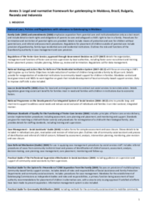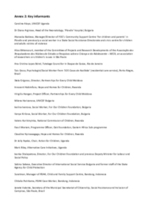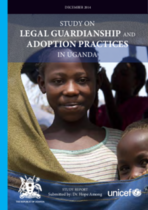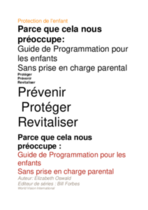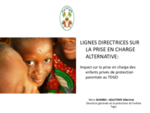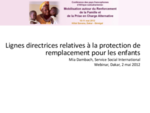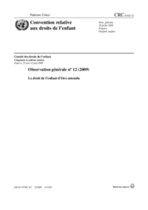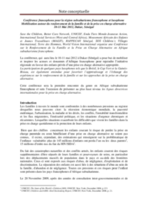Annex 2: Key informants - Making Decisions for the Better Care of Children: The role of gatekeeping in strengthening family-based care and reforming alternative care systems
Annex 1: Methodology - Making Decisions for the Better Care of Children: The role of gatekeeping in strengthening family-based care and reforming alternative care systems
Study on Legal Guardianship and Adoption Practices in Uganda
This study on legal guardianship and adoption practices in Uganda was designed to explore and get insight into current care practices.
Children Need Families Not Orphanages
This animated video from Lumos, narrated by Lumos founder J.K. Rowling, illustrates the “tragic consequences of orphanage care,” and argues that more can and should be done to support families to care for their children, eliminating the use of institutional care.
Protection de l'enfant - Parce que cela nous préoccupe: Guide de Programmation pour les enfants sans prise en charge parental
Guide de Programmation pour les enfants sans prise en charge parental.
Presentation - Lignes Directrices sur la Prise en Charge Alternative: Impact sur la prise en charge des enfants privés de protection parentale au TOGO
Ceci est une présentation à la Conférence sur le Renforcement de la Famille et la Prise en Charge Alternative en Afrique subsaharienne francophone en Mai 2012 en Dakar, Sénégal.
Presentation - Lignes directrices relatives à la protection de remplacement pour les enfants
Ceci est une présentation à la Conférence sur le Renforcement de la Famille et la Prise en Charge Alternative en Afrique subsaharienne francophone en Mai 2012 en Dakar, Sénégal.
Observation générale no 12 (2009) - Le droit de l’enfant d’être entendu
Le droit de l’enfant d’être entendu
Note conceptuelle: Conférence francophone pour la région subsaharienne francophone et lusophone - “Mobilisation autour du renforcement de la famille et de la prise en charge alternative”
La conférence, qui aura lieu le 10-11 mai 2012 à Dakar (Sénégal) a pour but de mobiliser et inspirer les acteurs et donateurs d’Afrique francophone pour rejoindre l’initiative régionale en faveur des enfants privés d’une prise en charge alternative appropriée. La participa

